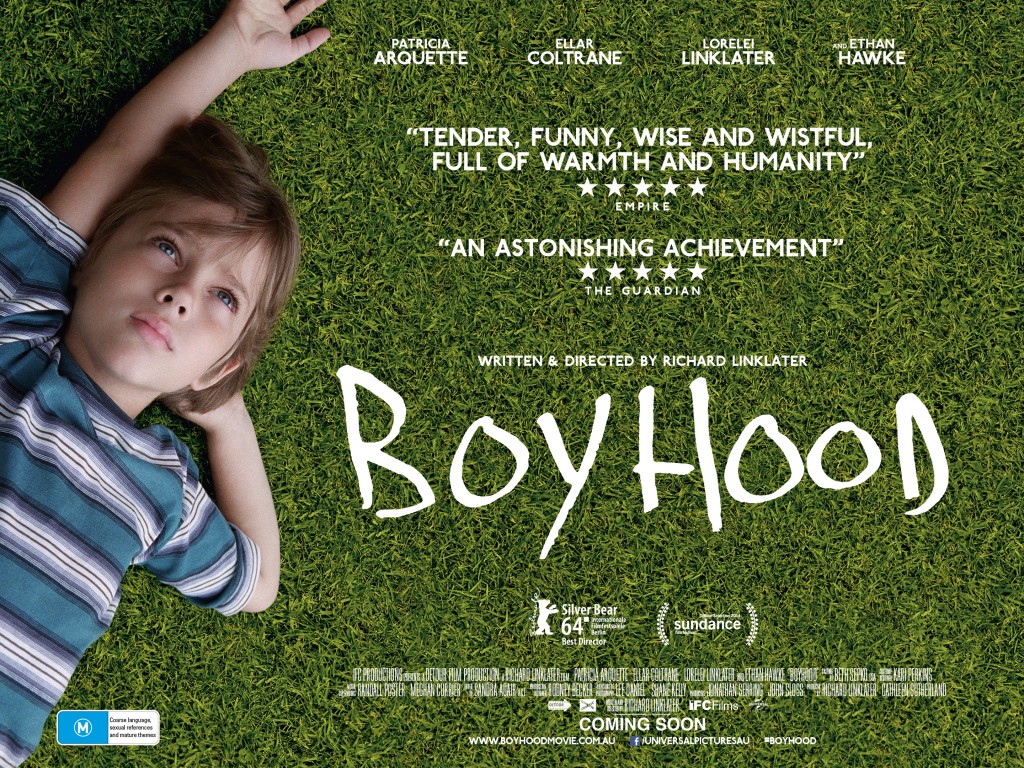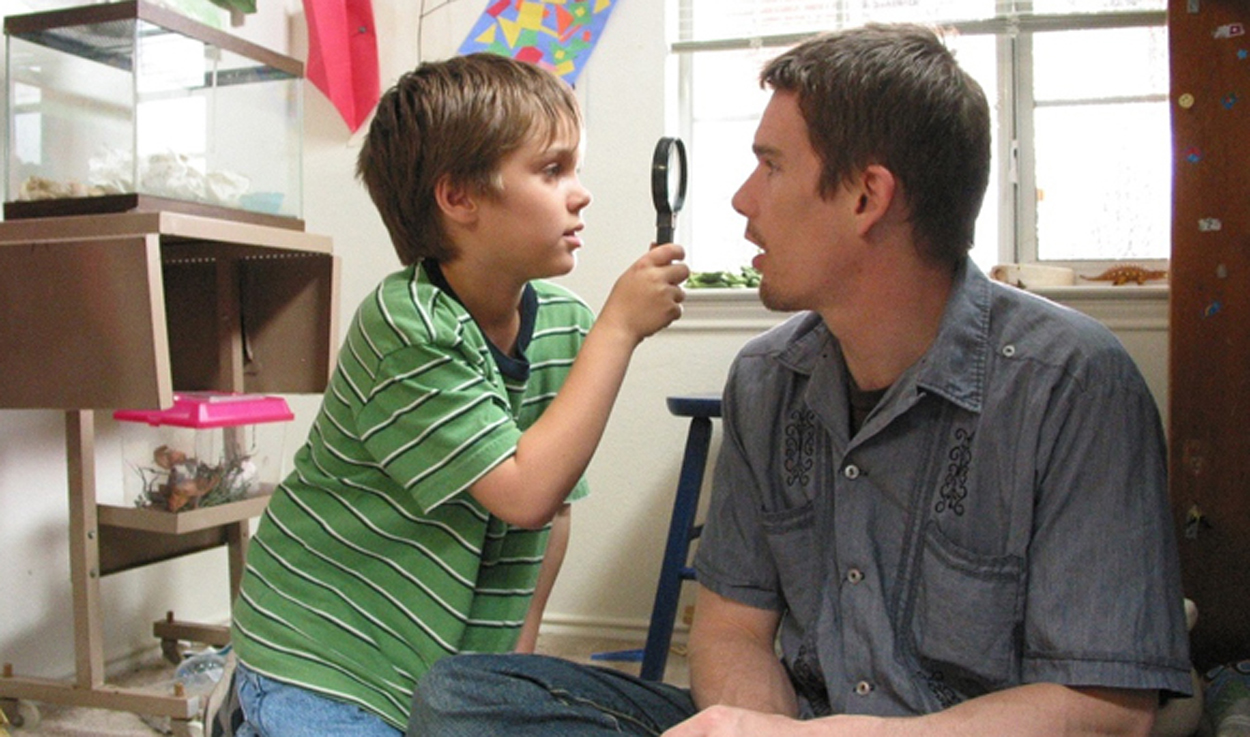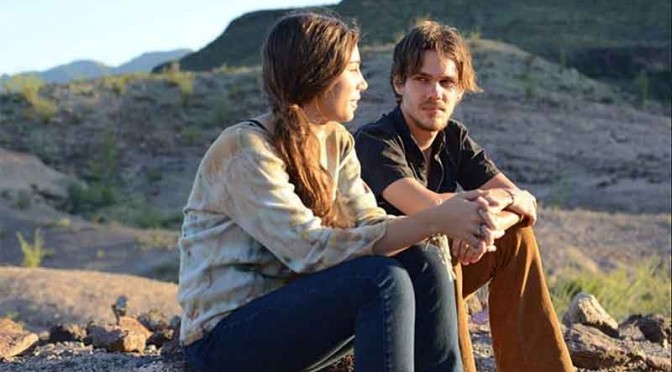This is a little masterpiece of a film, astonishing as much for what it’s not as for what it is.
You probably know about the unique logistics of the production — it follows the lives of a divorced couple and their two kids over the course of twelve years, and it was filmed over the course of twelve years, so you see the actors age in real time as their characters age in narrative time.
This is not actually what’s amazing about the film — what’s amazing is the way the process informs the narrative, disciplines the narrative. The wages of time, visible on screen in the aging of the actors, free director-writer Richard Linklater from the temptation to create synthetic dramatic milestones for the story.
The world simply moves on, and the characters move with it, coping as best they can with the changes time dictates. Their coping mechanisms are heartbreakingly inadequate. The catastrophe of an absent father and the heroism of an absent father trying to make amends, the instincts of children to feign indifference to their parents inadequacies and their desperate need to believe in their parents in spite of everything — the paradoxes in these situations are presented without judgement or resolution or hope of resolution.
There is a hopeful coda, an affirmation of the miracle of life itself, all the more powerful for not insisting that this affirmation answers any questions, heals any wounds. The film is about accepting a life without answers, without healing. You can read it as an endorsement of grace — or not. But in your heart of hearts you will receive it as an endorsement of grace.



